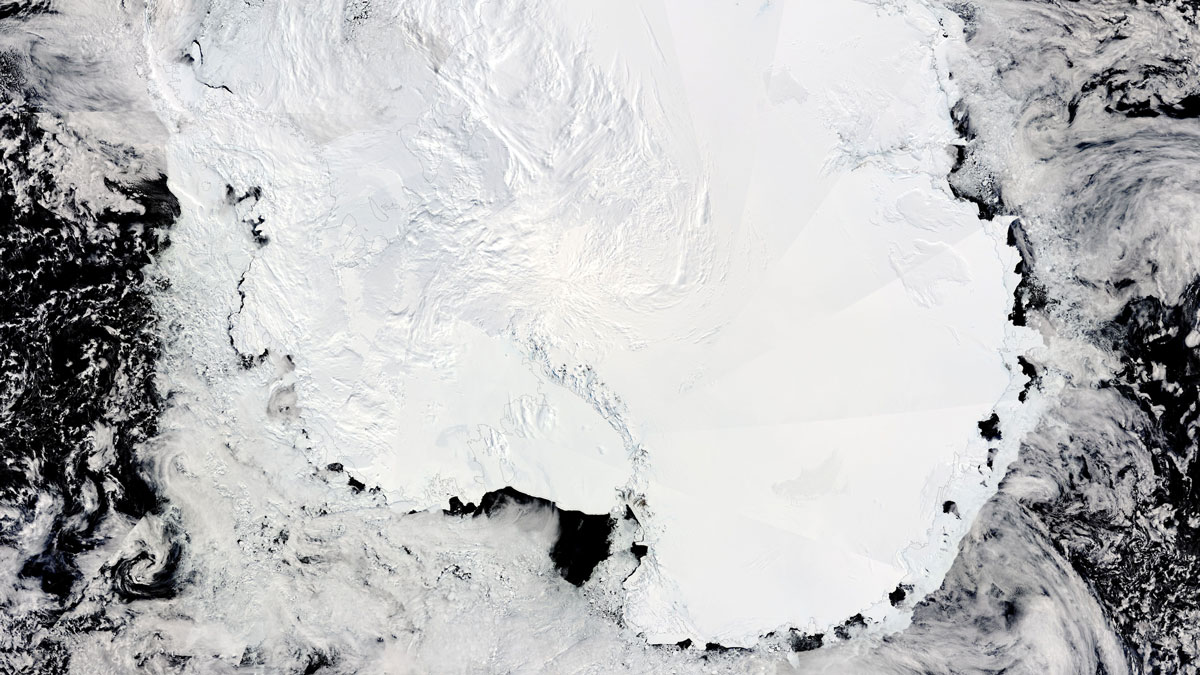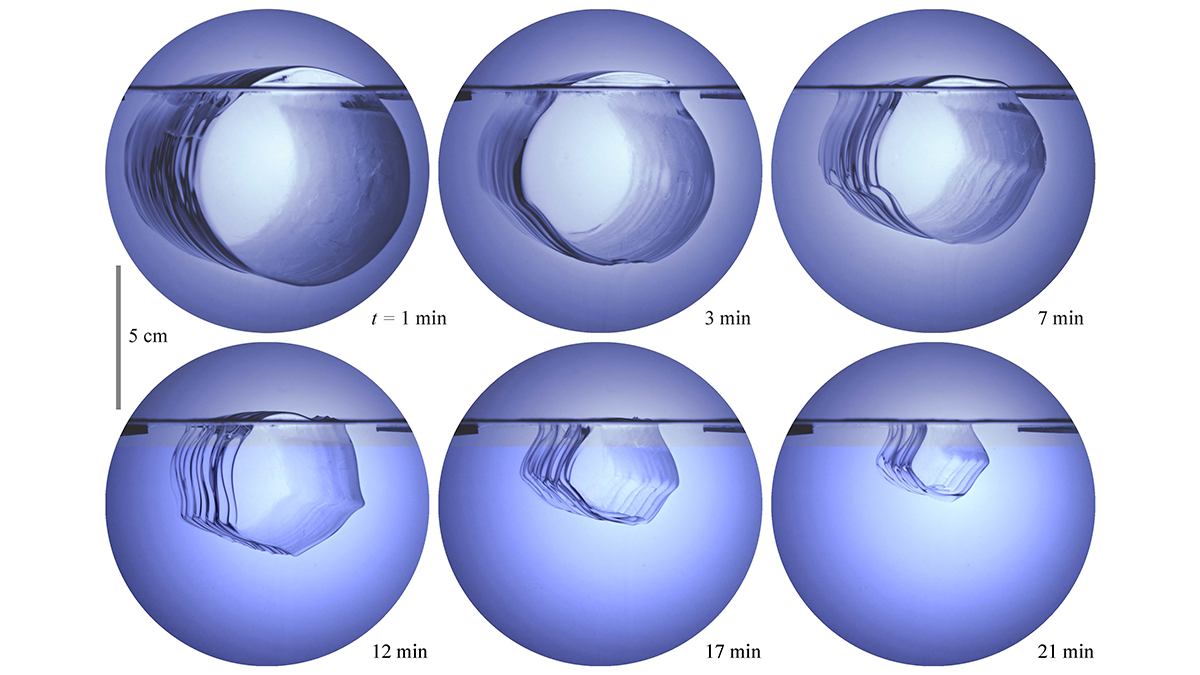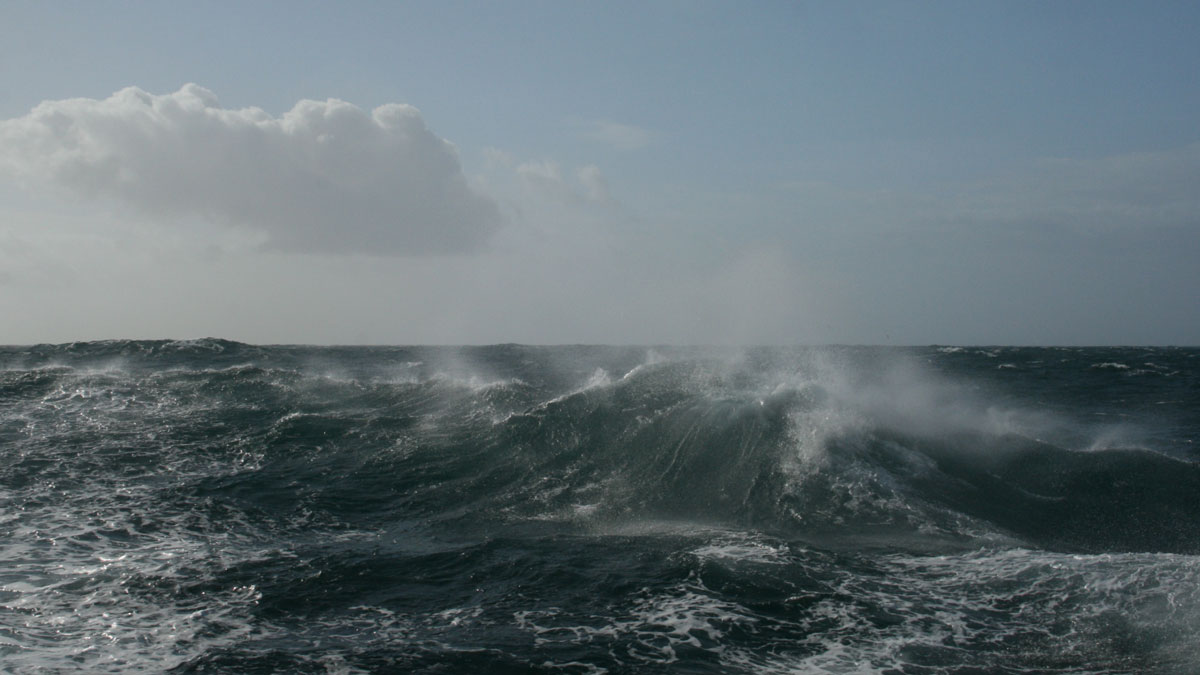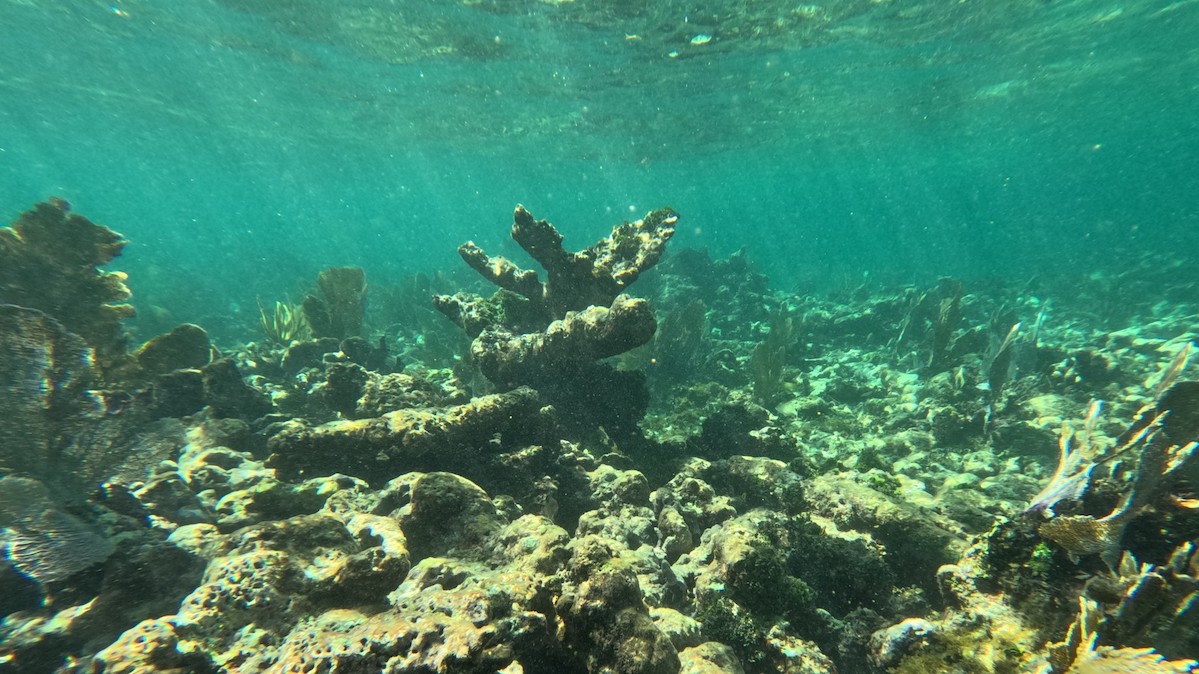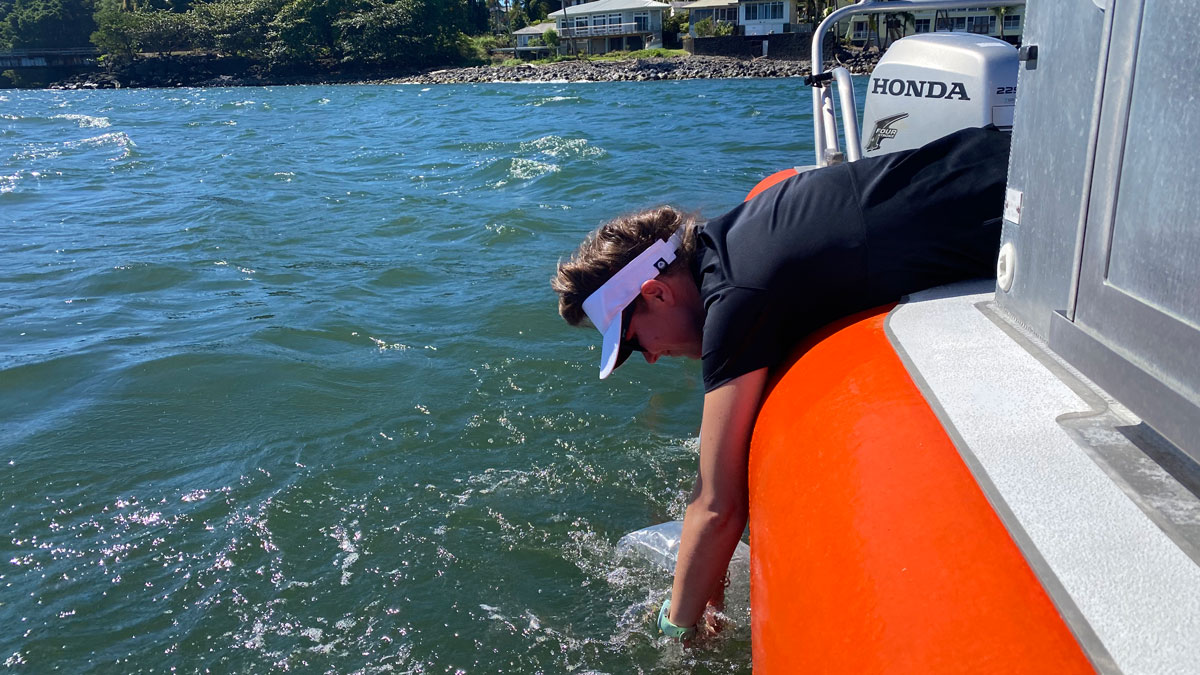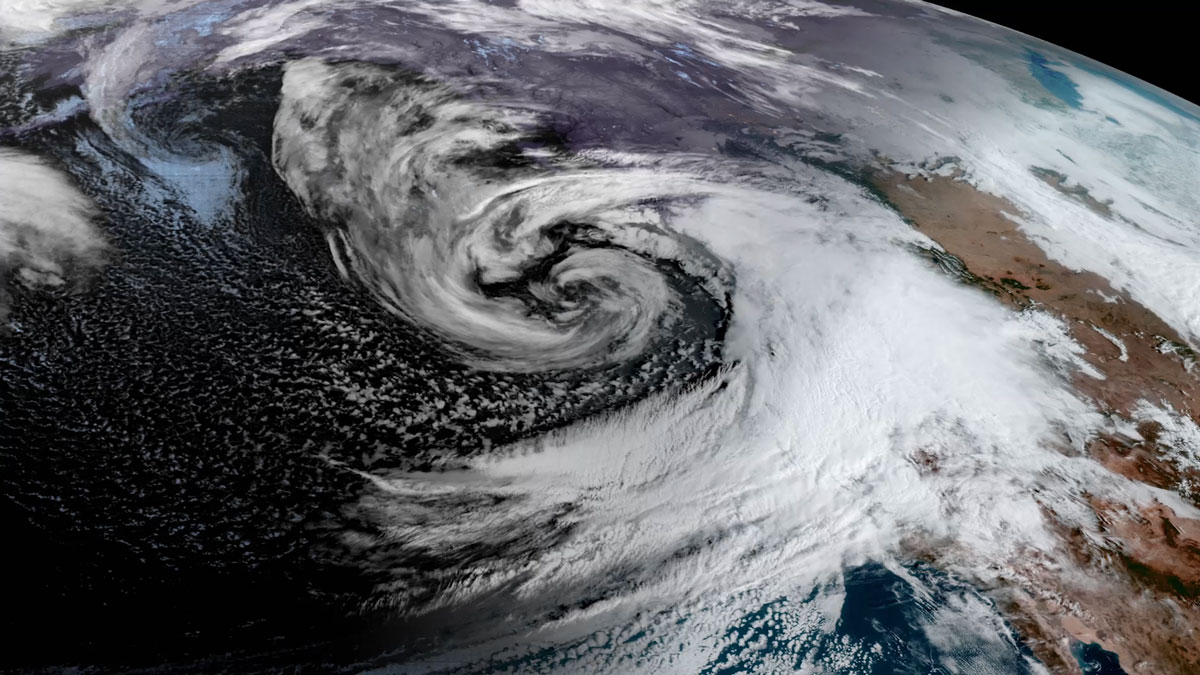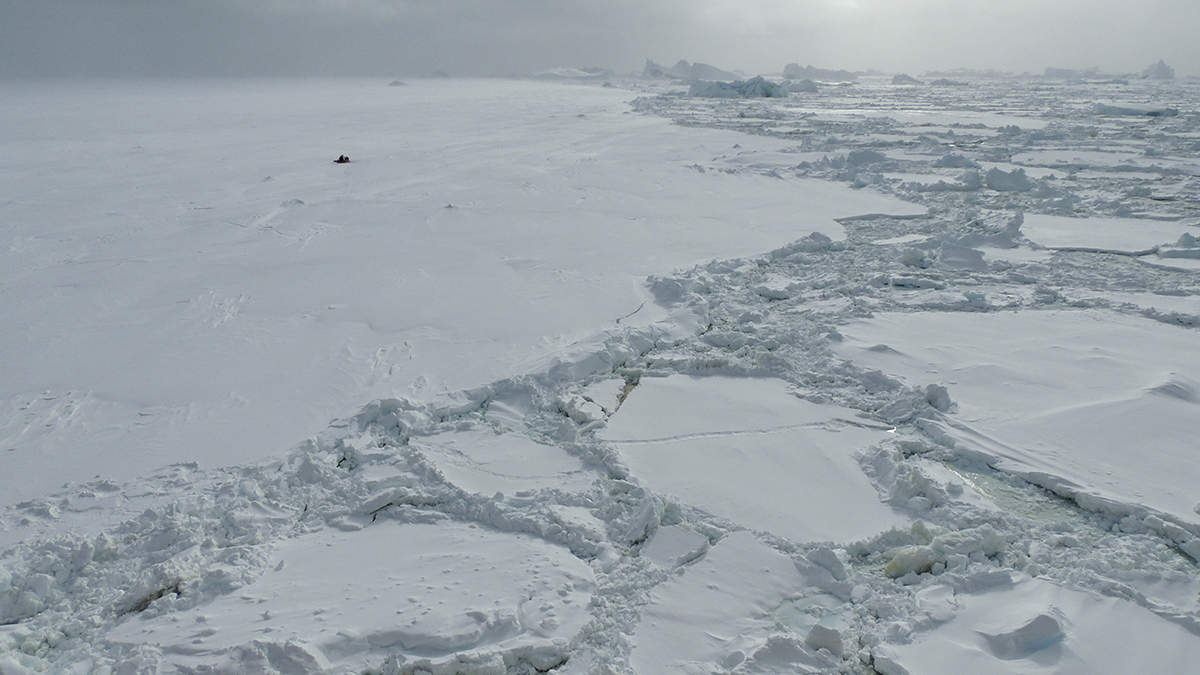Radar altimetry observations have pinpointed 85 active subglacial lakes, shedding light on how water moves beneath the Antarctic Ice Sheet.
Oceans
Marine Heat Waves Slow the Ocean’s Carbon Flow
When plankton find themselves in hot water, organic matters stalls at the surface and disrupts transport of carbon to the deep ocean.
Melting Cylinders of Ice Reveal an Iceberg’s Tipping Point
New lab experiments on cylinders of pure ice shed light on how icebergs flip over as they melt, demonstrating the link between a warming ocean and small-scale events that can have rippling consequences.
The Southern Ocean May Be Building Up a Massive Burp
Modeled results suggest that if anthropogenic emissions decrease and the atmosphere cools, heat stored in the Southern Ocean could be released abruptly in a few hundred years, kicking off a temporary warming period.
Scientists Tune In to the Ocean’s Sound Waves
A new technique detects inaudible acoustic signals from crashing waves, opening up possibilities for monitoring sea and atmospheric conditions from shore.
Panama’s Coastal Waters Missed Their Annual Cooldown This Year
The unprecedented failure of tropical upwelling will likely affect the country’s fisheries. Scientists aren’t certain whether it will happen again next year.
As Seas Rise, Corals Can’t Keep Up
Coral reef growth rates in the tropical western Atlantic have slowed to a fraction of what they once were, erasing coastal protection benefits they once offered.
Pinpointing Sewage Seeps in Hawaii
Cesspools and septic systems, as well as coastal development, put Hawaiian coastal waters at risk of contamination.
A Step Toward AI Modeling of the Whole Earth System
Coupling an AI-driven model of the atmosphere with a model of the ocean could help scientists create highly efficient emulations of the entire Earth system.
La salinidad del Océano Austral podría estar desencadenando la pérdida de hielo marino
Nuevas tecnologías satelitales han revelado que el Océano Austral se está volviendo más salino, un giro inesperado de los eventos que podría representar un gran problema para la Antártida.

